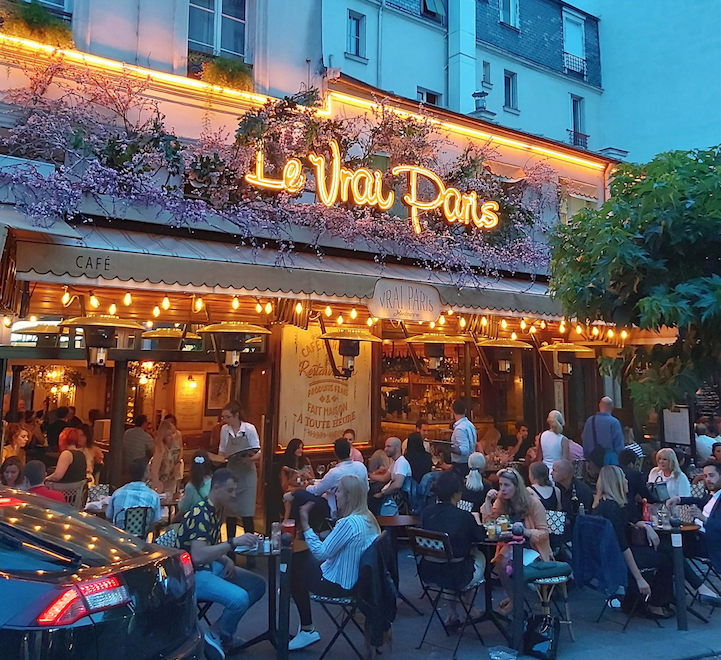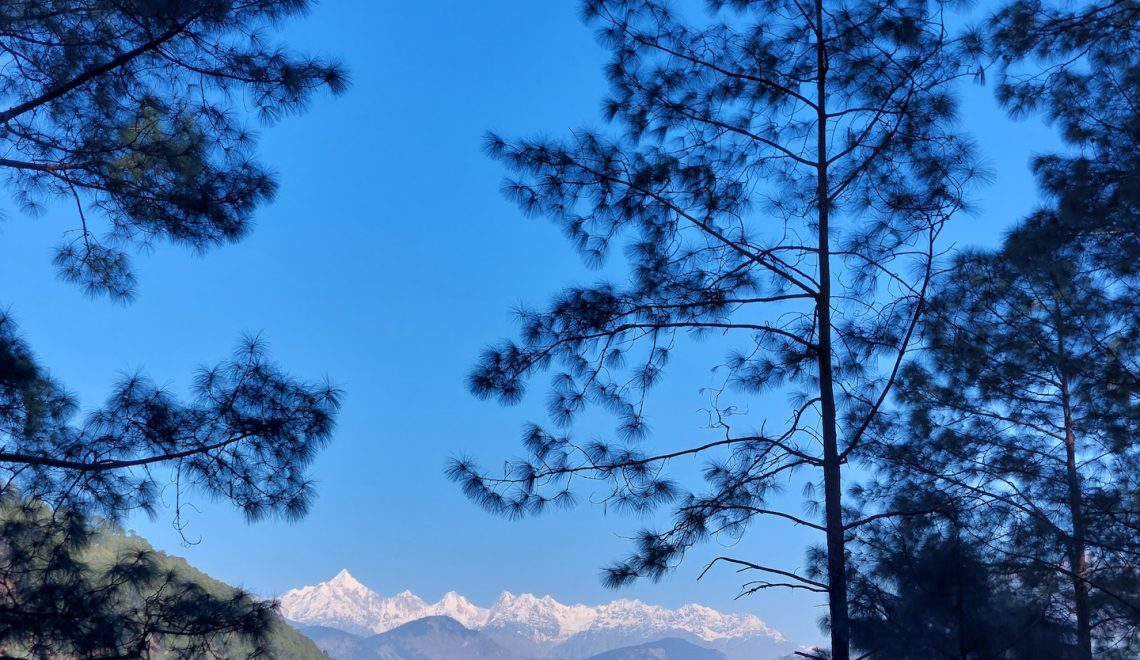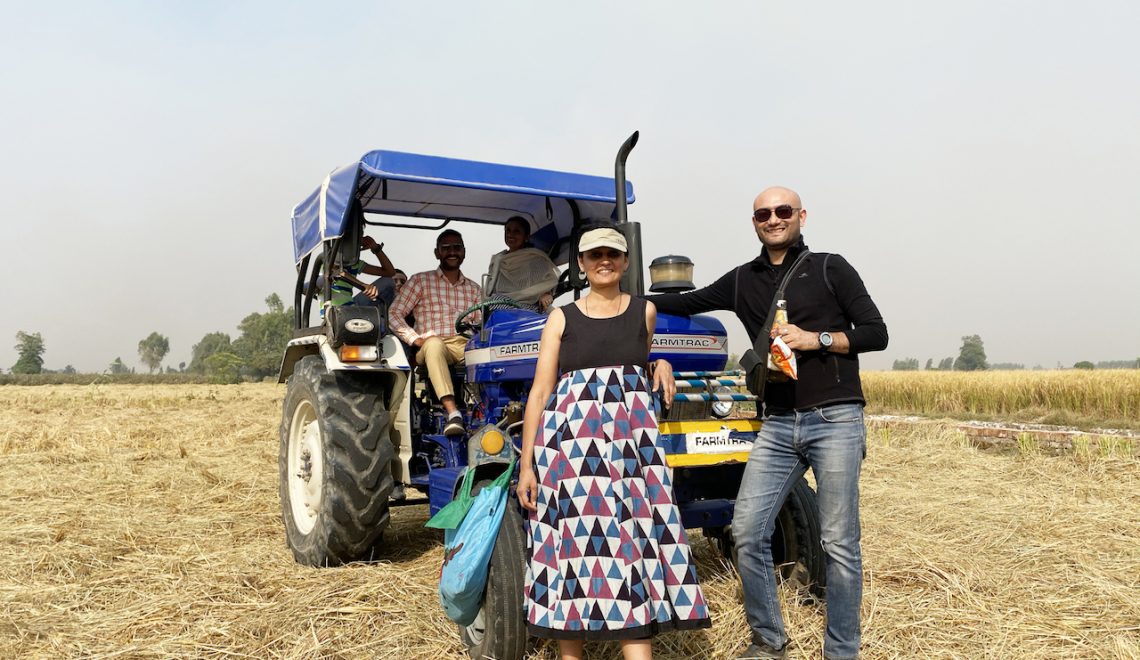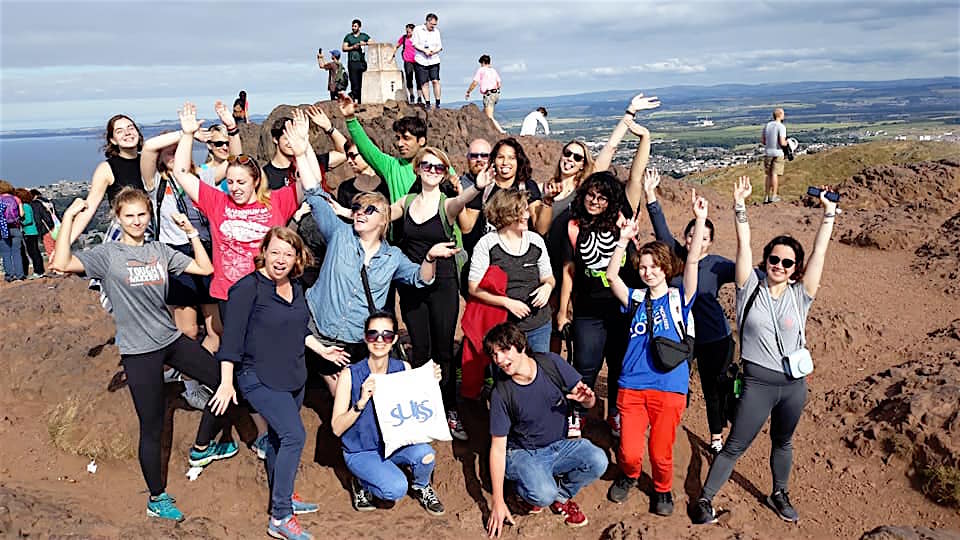
Travel can be your best teacher
Text by Amrita Shenoy
Main image courtesy SUISS; background image courtesy RESOLV
Perhaps the biggest takeaway from travelling to learn is in the lessons learnt outside the classroom, in the education that springs from exposure, and the enrichment that lies in constant engagement with new, diverse and challenging surroundings.
During my 5-month long student exchange programme in Germany, I had witnessed biting chills, snow, rain, sunshine and hail. But the weather was not the only thing new and different about the country. Short as our travels to learn may be, the lessons learnt on culture, and the imprints of memory, last a lifetime. And often, so do the new friendships that develop along the way. Here are four friends I made from across the world, who like me, travelled to participate in short courses and returned home the richer for the experience.
GERMANY
New challenges, new networks
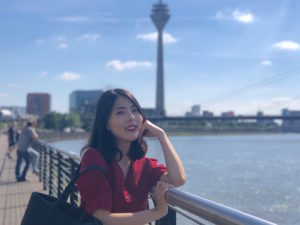
Korean Graduate Student Soyeong Kim (23) found herself in Düsseldorf, in April 2019, for a 5-month long Exchange Programme in Heinrich Heine University. The capital city of the North Rhine Westphalia region of Germany, Düsseldorf provided an introduction to a culture, landscape and language vastly different from Korea. “Apart from my major of Economics, I took English and German language courses,” she says, adding that the exchange programme fostered many global friendships that helped improve her English language skills. Meanwhile, Soyeong’s German language course lasted three months, and ended with her obtaining a beginner’s proficiency in the language. Designed by the University’s ‘Department of German as a Foreign Language’ exclusively for exchange students, the course was free-of-cost, but intensive, requiring a commitment of 10 hours a week.
The German language is structured very differently from Korean and often proved challenging for Soyeong. Navigating her way around the city without knowing the language well was also difficult. “I learnt German by speaking, listening, and writing in my school class. Of course, an added advantage was being in Germany, where I could practise through observation and interaction,” she says.
The programme, feels Soyeong, was well worth the effort. “I think learning a new language was a very useful experience for me as I am also interested in overseas business,” she says.
Meanwhile, Abhishek Kalarikkal (23) completed an MSc in Chemistry from India before heading to the city of Bochum, also in North-Rhine Westphalia, for RESOLV, a 4-day summer school on Solvation Science at the Ruhr University. Comprising both, theoretical and practical lectures, and workshops, the packed summer school oriented Abhishek with emerging trends and current best practices in the field. “The ‘career day’ was the most fruitful because I got to interact with professionals from various industries. Meanwhile, the hands-on training day was a different experience altogether as it was designed to accustom oneself to the working culture at the labs in RUB,” he says. However, the intensive, technical programme posed some challenges. “The course which I chose needed some prerequisite programming knowledge in LINUX (a computer-operator) based systems and I faced a few difficulties in getting on par with the other participants,” he recounts. Armed with the knowledge of jobs he can find in the field, and with the networks he built in his stay there, Abhishek looks towards applying for doctoral research in Germany and other European destinations.
ARGENTINA
Micro-lessons in social understanding
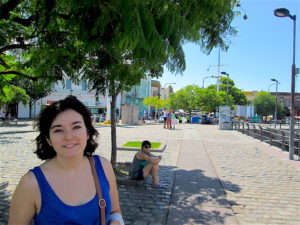
For Swiss Graduate student and German-Language tutor Salome Moser (24), a six-week stay in the Argentinian capital of Buenos Aires was a window to cross-cultural differences. Then 19 and eager to make the most of the gap between her high school and University, Salome travelled to Buenos Aires in January 2014 to attend a Spanish Language course and was hosted by a local family. Appreciative of Latin-American warmth, she says “I was touched by the people’s friendliness, lightness and spontaneity, and was able to take some of this attitude back to Switzerland, where people are more closed and serious.” Everyday situations, however, proved to be micro-lessons in social adjustments. “If you agreed to meet at 10 am, nobody showed up before 12 pm – except for the foreigners. In Switzerland, being late is considered very disrespectful and I had to learn not to take this as an insult,” she recalls.
Exposure to social hierarchies was also an eye-opener. “I really liked the way of life I had in Buenos Aires, although I was very aware that I was still a tourist and a student who did not face the difficulties of everyday life there and could afford a comfortable stay.” Speaking of her host family, she adds, “They had a live-in maid who cleaned, cooked and did all the chores as well as looking after our rooms. Something unthinkable in Switzerland!” A sense of renewed understanding and gratitude then came to Salome; “The maid was around 20 years old – my own age – and served and cleaned after me. I realised then how privileged I was, being able to travel, to get a university education and to go after my dreams without limitations, while this girl from the other side of the world would probably be a maid in privileged households for the rest of her life. I always keep this in mind and am very grateful for my position in the world,” she says.
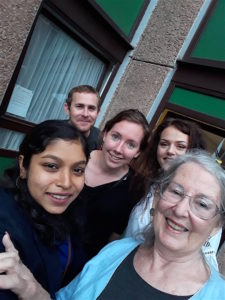
SCOTLAND
Never stop learning
In July 2019, American Memoir-Writing tutor Helene Voto (79) travelled to attend the ‘Scottish Universities’ International Summer School’ at the University of Edinburgh in the Scottish capital and UNESCO-recognised literary city.
“I had previously visited Edinburgh in 2001 and 2010 as my great grandmother was from the Isle of Mull and I was always interested in my Scottish ancestry and culture. The trip in 2019, however, was specifically to study Modernism in English, Scottish and Irish literature at SUISS and to see if I was up to the challenge after having graduated from university 56 years before,” says Helene, who has also worked as a University-level teacher and director of a professional repertory theatre company.
The selected course was exhaustive, both academically and culturally. “It was intense, structured, and required extensive reading preparation – all aspects of learning and study which fit my personality. There were various activities connected to the courses of study and others just for fun,” she reminisces. A grandmother of eight, Helene adds that she was impressed by the energy, intelligence and social concerns of the young men and women she met. Much of the experience revolved around Helene’s engagement with an ethnically diverse group of students from varied age groups and walks of life, all under a common roof.
“What was special about taking a course in Edinburgh versus back in the US was the setting, culture and atmosphere of the city. Being immersed in a university setting in Scotland with students from around the world spoke to my heart which would not be possible for me personally in the US. My life was so enriched by the students I met.”
For Helene, the SUISS experience was one of the most memorable of her later adult life. Proof enough that travelling to learn has no age limit!
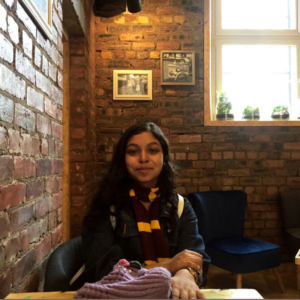
Amrita Shenoy is a lecturer based in Mumbai, India. She was a recipient of the Charles Wallace India Trust Fellowship that took her on a short stint to the University of Edinburgh as a student. She also spent five months in Dusseldorf, Germany, as part of a student exchange programme.

